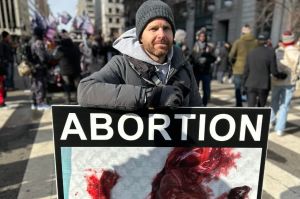Mere Revolution vs. Extraordinary Transformation

Pentecostal and Charismatic Christianity are proving as transformational as the first century church was in ancient Rome. They also reveal the stark contrasts between mere revolution and extraordinary transformation.
"Pentecostalism May Have Done More for Africa Than All Aid Organizations Combined," declared a recent oped in The Christian Post. Research indicates "that Pentecostalism is the largest movement for social justice that has ever existed."
The findings make it clear that social justice crusades without the Holy Spirit become ridiculous parodies and often violent authoritarianisms.
The oped quoted Dena Freeman, of the London School of Economics, and editor of Pentecostalism and Development: Churches, NGOs and Social Change in Africa. Freeman's conclusion bears repeating: "Pentecostal churches are often rather more effective change agents than are development NGOs." The Pentecostal churches "are exceptionally effective at bringing about personal transformation and empowerment..."
Matthew Parris, in a 2008 Times of London article, told of returning to the African nation he knew as a boy as Nyasaland, called today, Malawi. While there Parris observed the work of mainly Christian charities in relieving the hardships of Malawi's people. Such services, Parris wrote, "inspired me, renewing my flagging faith in development charities. But travelling in Malawi refreshed another belief, too: one I've been trying to banish all my life, but an observation I've been unable to avoid since my African childhood. It confounds my ideological beliefs, stubbornly refuses to fit my world view, and has embarrassed my growing belief that there is no God."
Parris said even though he's a "confirmed atheist," he has become convinced "of the enormous contribution that Christian evangelism makes in Africa: distinct from the work of secular NGOs, government projects and international aid efforts." These are insufficient, Parris wrote, because they do not bring personal transformation. "In Africa Christianity changes people's hearts," he said. "It brings a spiritual transformation. The rebirth is real. The change is good."
The Greek word often translated "good" in the New Testament refers to things that are profitable and beneficial. Thus, the "change is good," I would argue, because it is not mere revolution, but extraordinary transformation. "Mere revolution" stands in contrast to reform efforts profitable and beneficial for all, which is transformation in the best sense of the word.
Here are important contrasts between mere revolution and transformation:
- Mere revolution primarily sees the immanent only; extraordinary transformation is based on transcendent truth and values.
- Mere revolution works from outward to inward; transformation works from inward to outward—from the transformed "heart" to the behaviors and deeds of the body.
- Mere revolution relies on force; extraordinary transformation is freely embraced.
- Mere revolution is based on power; extraordinary transformation occurs through genuine authority.
- Mere revolution must be re-ignited; extraordinary transformation becomes a state of being.
- Mere revolution is a surface flare; extraordinary transformation is systemic.
- Mere revolution is about causes and institutions; extraordinary transformation is about life.
- Mere revolution is dependent on hypnotic leaders; extraordinary transformation rests in the power of the Holy Spirit working through people.
Contemporary revolutionaries-anarchists mistake the merely novel for the qualitatively new. The progressivist protestors are historically illiterate, thanks to the vapid academies many of them apparently attended. They likely don't know about a philosophical ancestor of theirs, Lincoln Steffens.
In 1919, Steffens was a New York newspaper reporter who believed devoutly in socialism, and, that year, went to Russia to observe events there. The country was two years into the Bolshevik Revolution that had as its goal that of igniting global revolution to create a "workers' paradise" everywhere. This is still the aim of many of today's revolutionaries.
After seeing the new Russia, he wrote, "I have seen the future, and it works." Talk about "fake news"!
Steffens died in 1936, and did not get to see the "future" he thought he was observing in 1919. The Black Book of Communism reveals what that future looked like for millions slaughtered in the name of Marx.
Jesus, not a mere revolutionary, but an extraordinary transformer, said He had come to give life, and that abundantly. (John 10:10) That quality of life was evident in Rome as Jesus' message and the power of the Holy Spirit through the church spread. "The Christian is to the world what the soul is to the body," wrote Mathetes to Diognetus about 200 AD.
Lincoln Steffens might have seen the future for which he yearned had he looked into the past rather than the Russian revolution of his own time. He might have seen the transformational impact of the early church on race, gender, social class, and many other concerns of social justice warriors.
Today's left-wing church that simply reflects the spirit of the age would do well to open its doctrinal, ecclesiastical, and ministerial doors to the Spirit of God. Right-wing churches that wall themselves off from what they consider Pentecostal extremes would impact their communities more effectively if they would open their gates more widely to the Holy Spirit.
When the church functions as the body of Christ midst communities in upheaval, doing incarnational ministry in the face of darkness and chaos in the power of the Holy Spirit, transformation happens.
Ancient Rome and contemporary developing nations prove it.



























